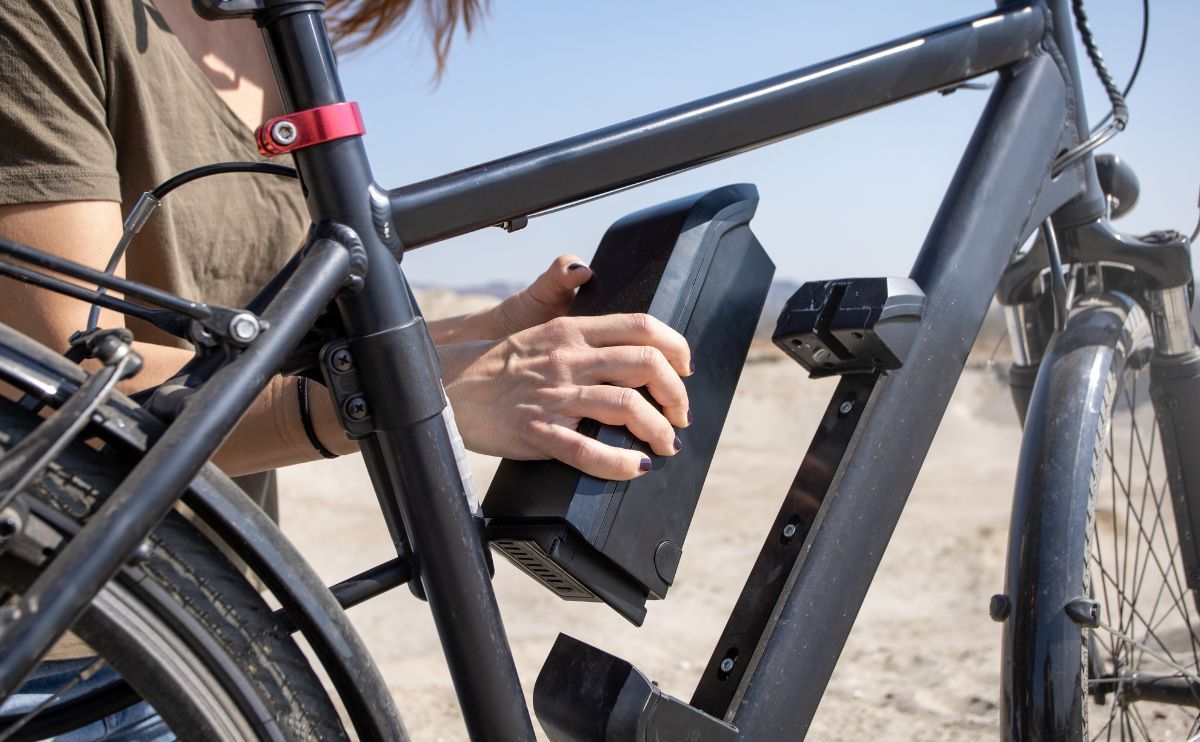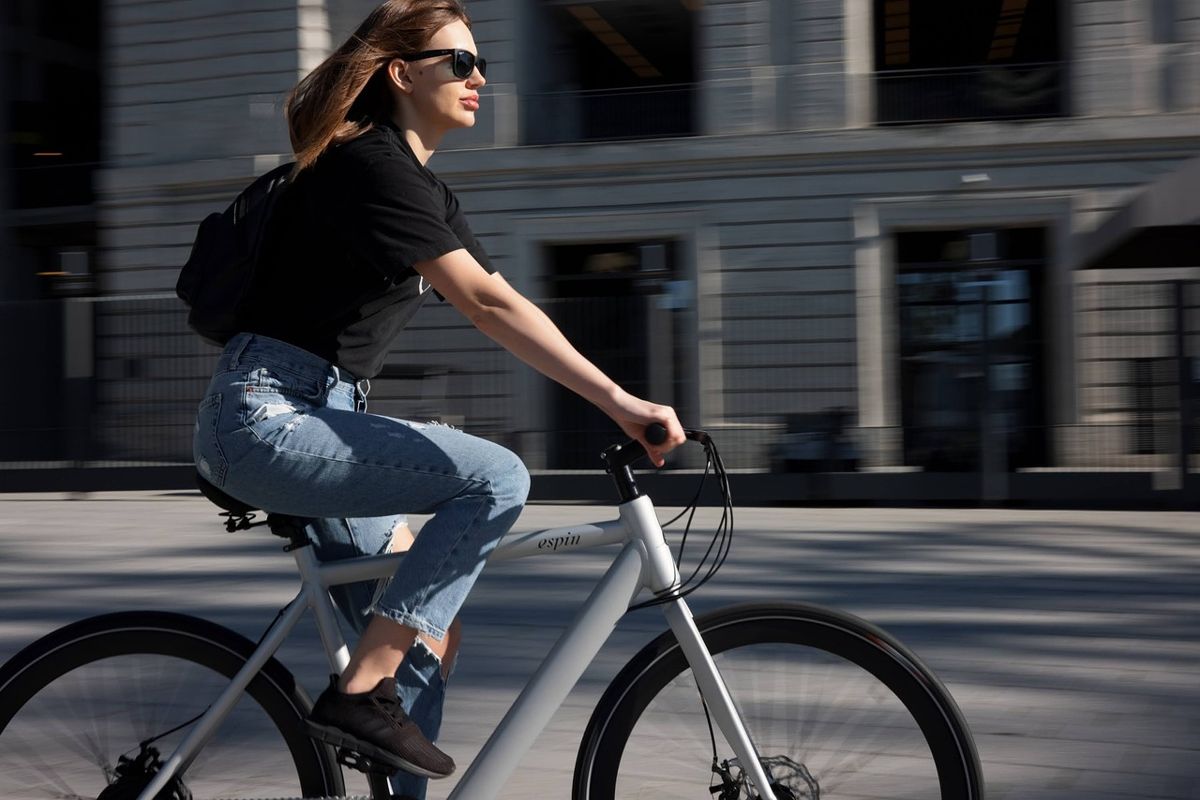With the growing popularity of electric bikes, more and more cyclists are choosing to insure their bikes to protect against the risks of accidents, damage, or theft. For the latter, a recent study conducted by Invoxia indicated that 65% of stolen bikes were electric bikes*. So it’s not a risk to be taken lightly!
However, before getting insured, there are some important pieces of information to know. If you’re looking into this, this article is for you!
Why take out insurance for your electric bike? #
Electric bikes, although they offer many advantages, such as fast and effortless travel, also have their small flaws. And one of them is the fact that they are a prime target for thieves due to their higher cost.
Taking out insurance for your electric bike thus allows you to cover specific risks such as theft, accidental damage, or breakdowns, but also to protect the investment made in an expensive bike. But there are some notable differences to consider compared to a classic bike insurance.
What are the specifics of electric bike insurance compared to classic bike insurance? #
If you want to insure your electric bike, it is generally more budget-friendly to opt for classic bike insurance. But be careful: you may not necessarily come out ahead!
1. The cost of insurance #
Insurance for electric bikes is generally more expensive than that for a classic bike due to the higher cost of electric bikes. These include costly components like the battery, motor, and electrical system. Depending on the value of the bike, the insurance may cover part or all of the replacement cost in case of theft.
💡 Count on a minimum difference of 50% between the two types of insurance.
2. Battery coverage #
One of the major distinctive elements between classic bike insurance and electric bike insurance is battery coverage. The battery of an electric bike is an expensive component that can represent up to 30% of the bike’s purchase price.
Some specific insurances for electric bikes include the battery in the coverage, both in case of theft and in case of mechanical failure or damage. This is not the case for classic bike insurances, where the battery is not an element included in the standard coverage.

3. Storage and security conditions #
Many insurances for electric bikes impose strict conditions regarding how the bike must be secured when left outside, including the obligation to use a specific lock. Some insurances may even sometimes offer discounts when the bike is monitored by a GPS tracker.
On the other hand, insurances for classic bikes may be a bit less demanding in terms of security, although using a good lock is always recommended.
4. Specific exclusions #
Some insurance policies for electric bikes may exclude specific types of damage, such as those due to battery wear or misuse. In these cases, the insured might not be covered for failures related to poor maintenance or incorrect battery charging.
It is therefore crucial to read the general conditions carefully before subscribing to a contract: an attractive rate may hide this lack of coverage.
5. The obligation of civil liability insurance for e-bikes #
An important point to note is that, according to French legislation, the electric-assisted bike (e-bike) is subject to specific rules. If the motor power exceeds 250 W or if the maximum speed exceeds 15.5 miles/h, the e-bike must be covered by civil liability insurance at a minimum.
This insurance is intended to cover the damages you might cause to other road users while riding your e-bike. This obligation does not concern classic bikes, which do not require specific insurance unless for particular use (for example, in the context of professional activities or competitions).
What risks are covered by electric bike insurance? #
1. Theft #
Theft is one of the main risks covered by insurance for electric bikes. In many cities, bike theft is a major problem, and electric bikes are particularly vulnerable. Good insurance will cover theft both inside and outside the home.
In France, about 1 in 3 people have already had their bike stolen according to the Invoxia study of October 2024. Among the victims, 65% owned an electric bike, clearly illustrating the importance of good insurance on the subject of theft.
On average, 5% of these bikes are found. This goes up to 50% when they are equipped with a GPS tracker, and over 80% when people file a complaint with the data reported from their GPS tracker.
2. Accidental damage #
Damage sustained during an accident, whether it’s a collision with a vehicle or a fall, is also covered by most electric bike insurances. This includes damage to the frame, battery, wheels, and other essential components.
3. Civil liability #
If you are responsible for an accident causing injuries or damage to others, civil liability coverage is generally included in insurances for electric bikes. This covers the costs of repairing damaged property or medical care for injured people.
4. Mechanical breakdowns #
Some insurances for electric bikes also include coverage for mechanical breakdowns, particularly those concerning the battery and motor. However, this coverage is often conditioned on regular maintenance and proper use of the bike.
What is the best insurance for an electric bike? #
The choice of insurance will depend on several criteria, including the value of the bike, its use (urban, hiking, etc.), and the guarantees offered. The main options include:
- Specialized insurances for electric bikes: These insurances offer comprehensive coverage, including the battery, motor, and accessories specific to the electric bike. They can be subscribed directly with specialized companies or as an option with traditional insurers.
- Comprehensive insurances: Some home insurances include options to cover electric bikes against theft, accidental damage, and civil liability. Although less personalized, these offers can be more affordable.
- Annual or daily insurances: Depending on your use, you can choose to subscribe to annual insurance or temporary coverage (for example, for an electric bike rental or a one-time outing).

If you own an electric bike, it is highly recommended to subscribe to suitable insurance to protect yourself against the specific risks associated with it. Battery coverage, storage conditions, and specific exclusions are all criteria to consider before making your choice. With electric bike insurance, you benefit from additional security that will allow you to enjoy your bike with peace of mind, while protecting yourself from unforeseen events.
*Study conducted in October 2024 by Invoxia on more than 7325 respondents in France

